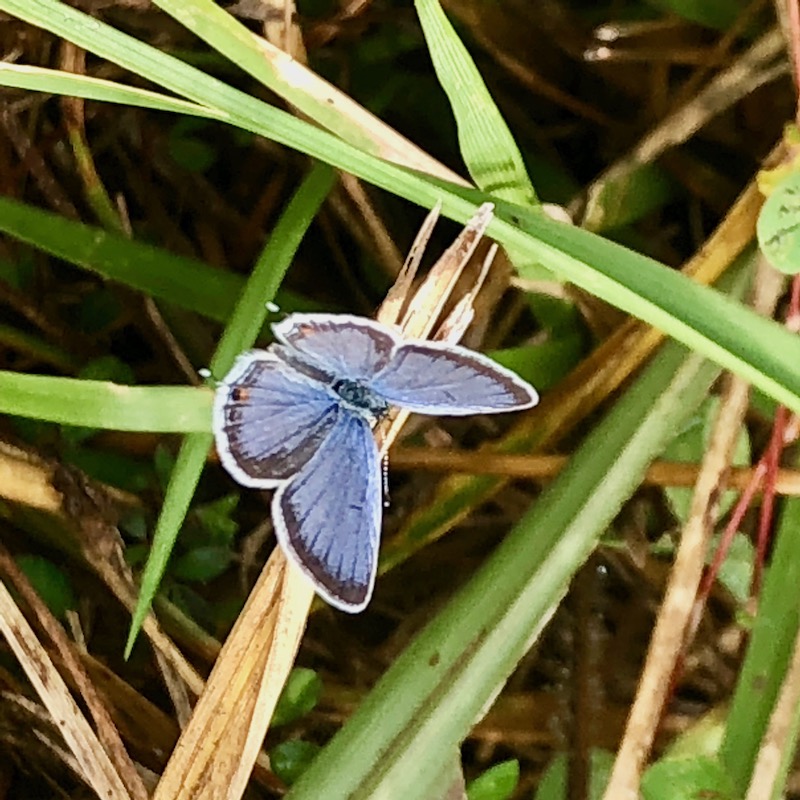“They were all amazed, and they kept on asking one another, ‘What is this? A new teaching—with authority!”—Mark 1:27
Even though it is annual meeting season, and like many of us, I am busier than a moth in a mitten, I also realized at the end of December that I was absolutely worn out by the stresses and strains of the COVID pandemic. I needed some little thing for me.
So I promised myself that I would read for pleasure every day for at least 20 minutes. There were plenty of books piled around the house, but many of them were more for my vocation than just for fun or for savoring. So I decided to start reading a book of essays by the poet Mary Oliver entitled Upstream, because I have started writing poetry again—haltingly. Her insights into the creative process are delightful. But within the first thirty pages, I was stopped in my tracks by this sentence:
Attention is the beginning of devotion.
I’ve been turning that small sentence over and over in my head the way your turn a smooth river rock over and over in your hand or in your pocket, tucked away. The more I thought about it, the more the words rang true.
When we were children, the thing we yearned for most was attention from those we admired: our parents, or older cousins or neighbors. When we became the big kids, we noticed little kids wanting the same from us. Hopefully we kindly obliged as much as we had been obliged when we ourselves were small.
Likewise, when we were small, many of us fastened upon often the most ordinary things that completely fascinated us. Chin propped on hands, watching the orderly dotted line of ants moving in and out of an anthill. Searching through the day for a four-leaf clover, and along the way noticing the variations in the edges, tones, and patterns on all the rejected clover-leafs. Watching the industrious uncoiling of the tongues of sulphurs, Monarchs, or blues as they competed with the bees for the clover or drank from the fallen, exploded sandplums under the trees. Learning how to tamp down your natural reaction when a bee landed on you until you could allow one to crawl across your hand with no fear because you know how not to startle it.
I remember thinking how amazing it was that this bee would have visited this flower, and I would never have known it were I not here to see and notice it right at that moment—and that all around the world, there were millions of bees contemplating millions of clover flower that I would never get to see. I became aware of how many hundreds of bees would visit this patch of clover in my backyard every day, whether I was there to observe them or not, and then later I was given a piece of wild honeycomb by my dad’s mother, who we called One Granny, and saw the bees’ destination as they flew away from me was, and marveled at how they could help create such sweetness from flowers that weren’t particularly pretty or sweet. I learned that bees made honey, but butterflies did not, nor did they make butter.
I learned to start paying attention. And certainly that started me on the path of devotion to creation in to the majority of all its quadrillions of living creatures (not so fond of cockroaches or grubs or water snakes, all of which gave me the heebie-jeebies, to be honest). But I learned something else: the path to devotion ran straight through a way-station called amazement. I was young, and therefore brave enough to be openly amazed and filled with wonder. I didn’t care if that amazement could be mocked by others as being naïve—I was lucky enough not to even know that some people sought to be above amazement, thinking it made them look knowledgeable and worldly.
And as I listened to Bible stories read to me by my mother, I began to notice when in the Bible it stated that a character was amazed, such as this Sunday, when we hear still in chapter one of Mark’s gospel how Jesus’s teaching and healing amazed those in the synagogue who witnessed them.
I like to think of the joy they felt—Mark’s gospel doesn’t have Jesus’s hometown crew them turning on him with a “Just who do you have the nerve to think you are” fury. Instead, the crowds seem genuinely open to the possibility of something new coming from the most unlikely of people. I imagine them going back to their homes and telling the story over and over again to their family, and watching their kindred’s eyes fill with wonder as they themselves open to the possibility of seeing something new. Something they might not have noticed was new had they not been paying attention.
That attention is the beginning of all Epiphany stories, in fact, and it is steeped in the willingness to surrender to wonder and amazement, no matter how foolish it might seem to indulge in hope in a society that seeks to crush our imaginations and dull our senses. And I imagine that was why some were willing to abandon their shovels and their lathes and their nets, and follow Jesus out into a world that needed to be shaken to attention. To be brought back to amazement. And led to devotion.
The Rev. Leslie Scoopmire is a writer, musician, and a priest in the Diocese of Missouri. She is rector of St. Martin’s Episcopal Church in Ellisville, MO. She posts daily prayers, meditations, and sermons at her blog Abiding In Hope, and collects spiritual writings and images at Poems, Psalms, and Prayers.

